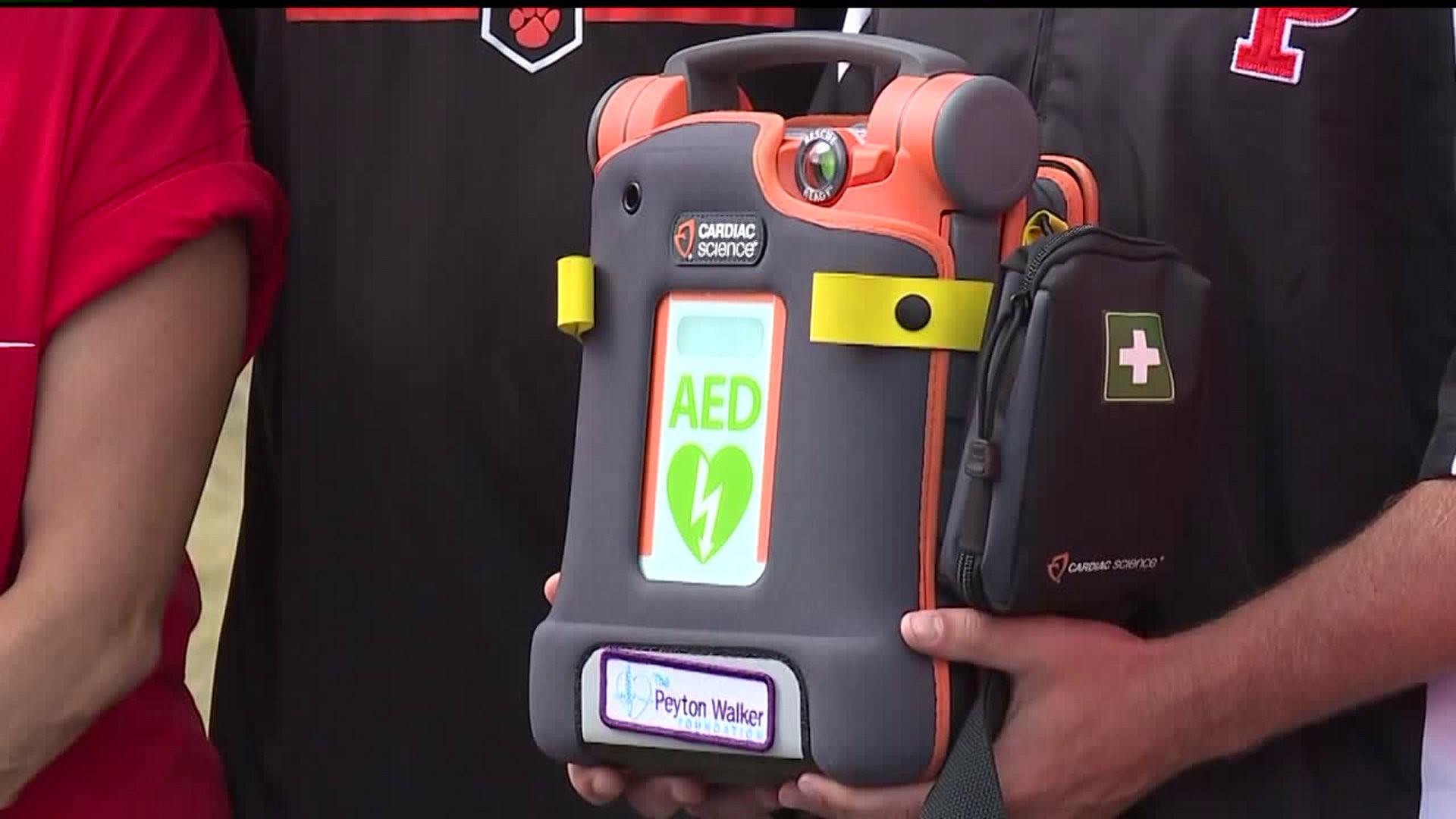CUMBERLAND COUNTY, Pa. — For almost 10 years, Julie Walker has been informing parents and young athletes about the killer that took her daughter, Peyton on Nov. 2, 2013: Sudden cardiac arrest.
The Peyton Walker Foundation has made tremendous progress over that time, but Julie continued to experience resistance. That is until NFL player Damar Hamlin collapsed in the middle of a game on Monday Night Football in Cincinnati.
The doors that were previously closed were suddenly blown wide open.
"We’ve been inundated since January with AED (Automated External Defibrillator) requests, people want to make sure there are defibrillators where their kids play and practice sports," she explained. "There's been so much pressure and so much demand for the services we provide."
Heart screenings are one of the key services provided by the foundation.
Once again this year, they arranged for players in the Big 33 Football Classic to be tested. It's mandatory for players on Team Pennsylvania to be tested before they can practice or play in the game.
“The idea is to detect these abnormalities before they become a significant problem and then put a plan in place so that the athlete can potentially participate, but do so in a safe manner," said Dr. William F. Apollo, M.D., the co-director of UPMC's Central Pennsylvania Sports Cardiology.
Hamlin was actually a member of the Big 33 Team Pa. in 2016. He’s unknowingly made a massive impact on the game off the field.
“My dad has A-FIB and a heart condition that I’ve, on a personal level, seen and had to relate to so it’s nothing too new to me," said Big 33 player Stephen Scourtis. "I don’t have major issues but it’s something I’m familiar with so I understand the seriousness of it."
Two percent of those screened need a follow-up appointment with a doctor. About 1% of those may have a problem that limits their physical activity.
The foundation has given away over 500 automatic external defibrillators in central Pennsylvania. Due to a lack of financing and a backlog of AED orders with manufacturers, they simply can’t keep up with the new demand.
“Every quarter, we review the applications and typically we'd have 15 applications," detailed Walker. "This first quarter we just go over 60 applications for AED's. We would love to fulfill all of those requests but the biggest thing holding us back is financing. We don't want luck and a roll of the dice to determine if our kids are going to be safe, we can do better than that."
For more information on the Peyton Walker Foundation, click here.

